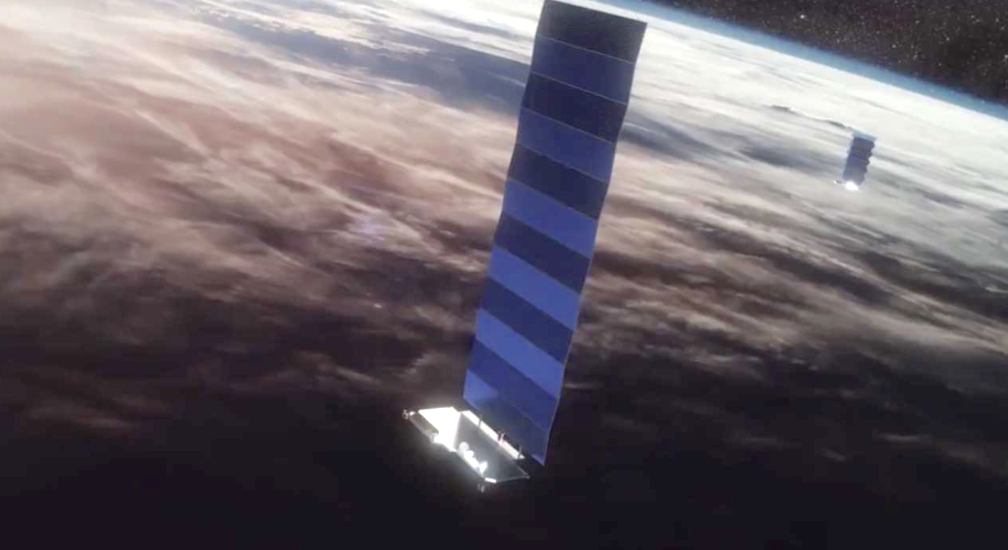
The FCC has agreed to allow SpaceX to launch ten Starlink satellites into a polar orbit later this month. The FCC published the order on January 8 granting permission for the ten satellites to be placed into a 560 kilometers orbit with an inclination of 97.6 degrees. The satellites will be launched by a SpaceX Falcon 9 no earlier than January 14.
The satellites will launch as part of the Transporter-1 mission, which is a dedicated smallsat rideshare mission. SpaceX has been lobbying the FCC for permission for the launch into a polar orbital plane for weeks. Reports indicate that the FCC is considering modifying SpaceX’s license to lower the orbits of satellites originally authorized for higher altitudes.
In November, SpaceX issued a request to the FCC for permission to launch 58 satellites into a single polar orbital plane. At the time, SpaceX cited an opportunity for a polar launch in December, but it didn’t identify the opportunity at the time. SpaceX said that placing some satellites into polar orbits would allow it to begin service in Alaska.
Currently, Alaska is not inside the Starlink coverage area for its existing network of satellites in mid-inclination orbits. According to SpaceX, placing the satellites into polar orbits will allow it to offer high-quality broadband service to the most remote areas of Alaska. There was opposition to SpaceX’s plan by Viasat. It claimed “commercial expediency” wasn’t a sufficient reason for the FCC to grant permission for the polar orbit launch.
The FCC concluded that SpaceX was allowed to launch the ten satellites into the polar orbit and that it was in the public interest. The FCC did reject Viasat’s opposition to SpaceX’s request noting that the ten satellites didn’t present concerns in connection with the reliability of the satellites and the potential orbital debris hazards they pose.
By Shane McGlaun, SlashGear.com
